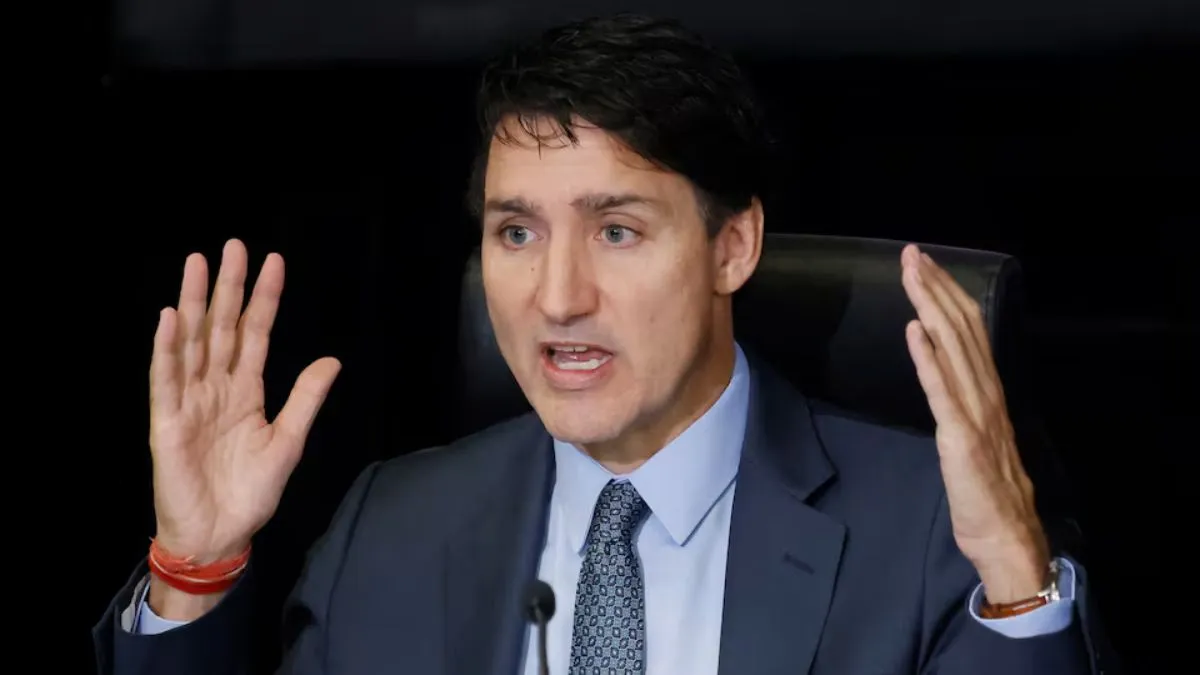- By Kamal Kumar
- Mon, 18 Nov 2024 05:36 PM (IST)
- Source:JND
Canada Immigration Crisis: Facing severe public criticism over policies by his government, Canadian Prime Minister Justin Trudeau has admitted that his administration made "mistakes" in immigration policies which were exploited by some "bad actors" including some big corporations and "fake colleges". Trudeau's confession came as his party faces a steep decline in its approval rating ahead of the general elections scheduled next year.
According to a report by news agency PTI, Trudeau's Liberal Party faces "intense" public criticism due to his policies leading to housing shortage, inflation, and deteriorating health and transport systems in the country.
Amid rising dissatisfaction among the public, the Canadian opposition also stepped up criticism of Trudeau for his resource mismanagement and "failure to prioritise Canadian citizens' needs".
Trudeau Announces Fresh Curbs On Immigration
Trudeau posted a video message on YouTube on Monday, announcing the reduction in the number of immigrants in the country.
"In the last two years, our population has grown fast, like a baby boom...Increasingly bad actors like fake colleges and big chain corporations have been exploiting our immigration system for their interests."
To combat this, "we are reducing the number of immigrants who are coming to Canada for the next three years," he said.
'Made Some Mistakes'
"We made some mistakes and that's why we are taking this big turn," he said, justifying his government's action.
Canada's Immigration Minister Marc Miller released the government's revised immigration strategy, projecting a significant reduction in permanent and temporary admissions by 2025. The country plans to welcome around 395,000 permanent residents next year, a nearly 20% decrease from the 485,000 expected in 2024.
Targets for temporary immigrants, including international students and foreign workers, are also being scaled back, with numbers set to drop to 446,000 in both 2025 and 2026, compared to around 800,000 this year. By 2027, Canada aims to accept only 17,400 new non-permanent residents, signalling a shift in immigration priorities.
Popular Student Intake Program Junked, Indians Set To Be Impacted
Canada has announced the discontinuation of the popular fast-track Study Direct Stream (SDS) visa program, a significant policy shift expected to impact thousands of international students, particularly from India. According to the Indian High Commission, India remains the largest source of foreign students in Canada, with approximately 427,000 Indian students currently enrolled in Canadian institutions.
Prime Minister Justin Trudeau acknowledged that Canada's immigration policies have historically prioritized permanent residency, focusing on families settling in the country and adhering to annual quotas for new residents. However, he admitted this approach overlooked "the other pathway" — temporary immigration — which includes international students, temporary workers, and similar groups.
"After the (coronavirus) pandemic, our economy came roaring back quickly. We wanted more workers fast. We were amid a huge labour shortage. Temporary foreign workers have become such a significant part of our workforce...So, we brought in more workers," he said.
And it was the right choice and it worked, Trudeau highlighted.
"Our economy grew. Restaurants and stores reopened, businesses kept running, but most importantly, despite lots of economists' predictions, we avoided the worst-case scenario -- a recession,” he said.
However, the prime minister said, some saw that as an opportunity to profit, to game the system.
"We have seen way too many large corporations doing this. Far too many colleges and universities used international students to raise their bottom line because they could charge these students tens of thousands of dollars more for the same degree.
"And then there are really bad actors who outright exploit people who target vulnerable immigrants with promises of jobs, diplomas and easy pathways to citizenship promises that would never come true,” he said.
"Looking back when the post-pandemic boom cooled and the businesses no longer needed the additional workforce, as a federal team, we could have acted quicker and turned off the taps faster," Trudeau admitted.
